The slingshot is often seen as a simple toy for kids, but this underestimates its true capabilities. With practice and the right technique, a tactical slingshot can serve many useful purposes. This in-depth guide will explain everything you need to know to leverage the power of this humble tool.
Key Advantages of Tactical Slingshots
Compared to firearms, tactical slingshots provide some compelling advantages:
Simplicity and Low Maintenance
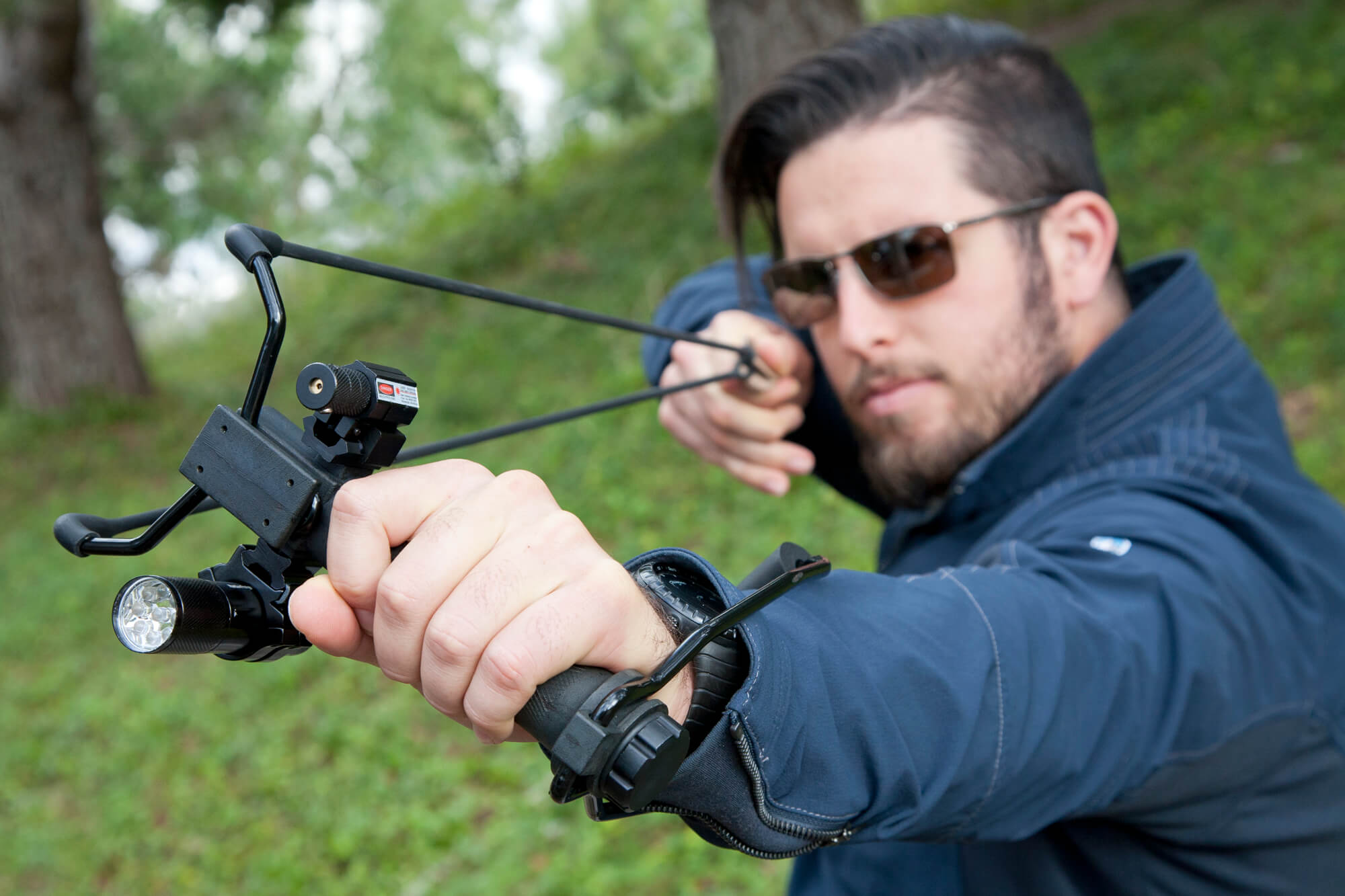
With only a forked frame and elastic bands, slingshots have very few moving parts. They require minimal upkeep and can be easily repaired in the field using basic tools or materials. Even after long periods of neglect, a slingshot will still function with some cleaning and new bands.
Lightweight and Portable
Most tactical slingshot models weigh under 1 pound and fold up small enough to fit in a pocket. This makes them highly portable for outdoors activities or survival situations where pack weight is critical.
Silent Operation
Unlike guns which produce loud noises, slingshots can be used discreetly for hunting small game or self-defense. The bands make little more than a slight “ping” upon release.
Low Cost and Ammo Availability
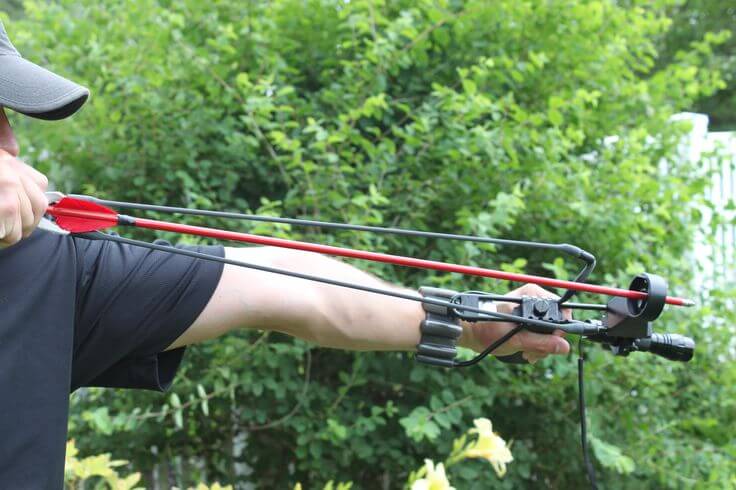
Quality slingshots start at around $20, far less than any firearm. Common projectiles like pebbles, ball bearings or clay are cheap and readily scavenged in most environments.
Non-Lethal Potential
With the right ammunition like steel or lead balls, slingshots can certainly be lethal. However, many projectile options allow for non-lethal takedowns of animals or self-defense against aggressors from a distance.
By leveraging these advantages, the tactical slingshot becomes a simple yet effective tool with many practical applications. Its strengths complement its limitations, as we’ll explore further.
Applications for Tactical Slingshots
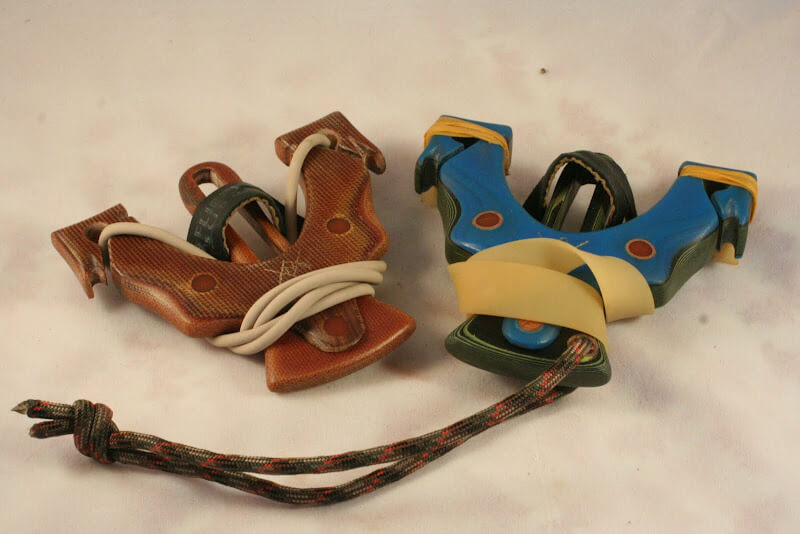
Beyond plinking cans or casual target shooting, slingshots open many doors when put to practical use:
Small Game Hunting
Rabbits, squirrels, birds and other small game can be humanely taken using steel or lead ball ammunition aimed for quick kills. Slingshots provide a sustainable food source when other means aren’t available.
Survival Signaling
By launching brightly colored projectiles high into the air, slingshots make an excellent short-to-medium range signaling device for emergencies. Retroreflective tape or crushed glass further increases visibility.
Fishing
With the right ammo pouches, fishing line or small treble hooks can be launched at schools of small panfish near shorelines. Combined with basic pole-fishing, this expands options.
Self-Defense
While not ideal for all situations, a steady hand and well-placed shot makes a slingshot viable against aggressive animals at close range. It could potentially deter unarmed human threats as well from a distance without permanent harm.
Shelter/Tool Construction
By launching paracord or twine, slingshots help strand small bushes or trees together quickly for simple emergency shelters. They can send bundled fibers or bonds to lash together found tools as well.
Property Protection
Slingshots offer a humane, potentially legal means to ward off problem pests like rats or smaller predators threatening livestock or crops. Launched deterrents scare without serious harm.
Used respectfully and within legal boundaries, tactical slingshots have diverse applications that may one day provide a critical advantage in unpredictable outdoor or survival scenarios. Understanding their effective usage unlocks real potential.
Legal Considerations
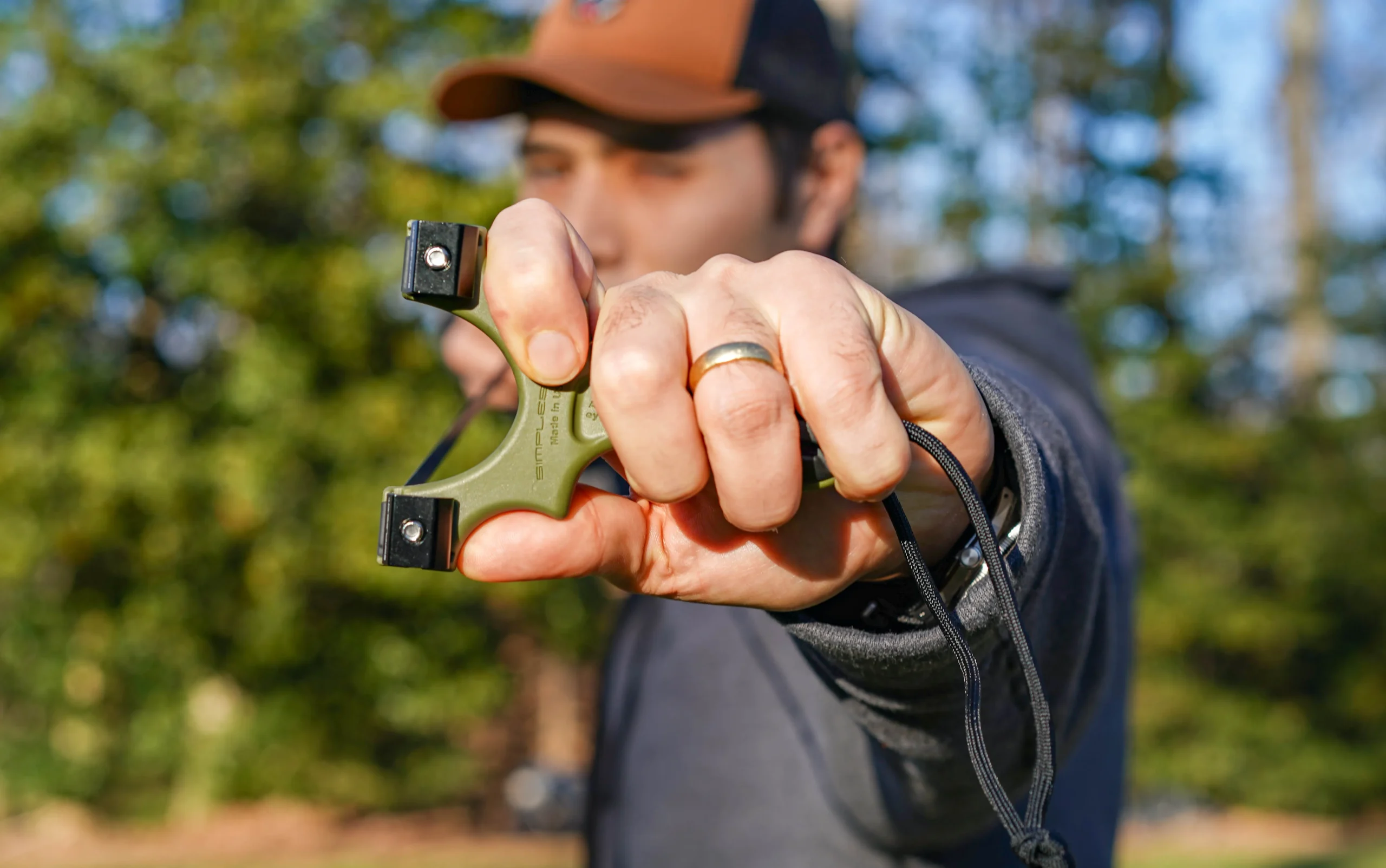
Always research local laws governing slingshots, as regulations vary significantly:
- Age restrictions: Some areas prohibit minors from using or owning slingshots without adult supervision. Minimum ages may be 16 or 18+ years old.
- Property damage: Slingshots are generally barred from causing intentional damage to private/public property. Aiming carefully at approved backstops is advised.
- Public areas: Most populated areas like parks totally ban slingshots due to safety concerns. Only use them on private land with permission.
- Lethality: Some jurisdictions disallow steel/lead ball ammunition or slingshots capable of lethal force against humans. Check projectile size limits.
- Hunting: Slingshots used for hunting small game may require licenses like any other hunting weapon depending on region. Research regulations thoroughly.
- Concealed carry: Carrying a concealed, loaded ready-to-fire slingshot in public is illegal in many places for self-defense reasons.
Being fully aware of local laws is paramount for responsible, legal slingshot activities. If any part of intended usage raises legal questions, it’s best to avoid that application.
Choosing the Right Tactical Slingshot
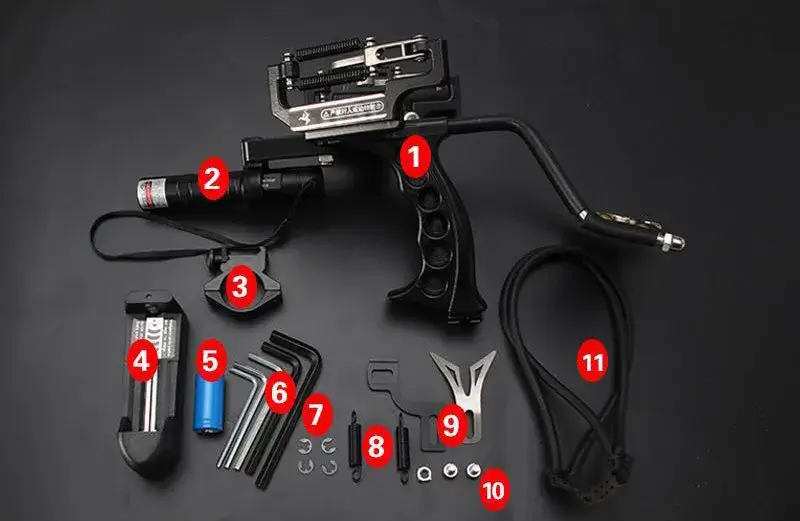
With so many models available, finding the ideal slingshot takes research. Here are some factors to consider:
Frame Material
- Wood: Classy traditional aesthetic but requires more care. Can break over time.
- Metal: Durable, moisture/impact resistant but heavier.
- Polymer: Lightweight, customizable and easy-care but less hardy.
Band Type & Configuration
- Tapered flat bands: Stretchy power but snap back fast, risking fliers.
- Tubes: Smooth draw, control but less power than flats. Try both.
- Single vs. double bands affect draw weight and power output.
Additional Features
- Wrist brace: Adds stability for accuracy. Comfortable for extended sessions.
- Sights: Beneficial for longer hunting or target range shots. Adjustable models offer more customization.
Budget
Quality slingshots start around $20 while competition models can exceed $100. Balance needs with budget.
Intended Use
Consider application – hunting, targets, survival etc. when choosing compatible bands, ammo style, range.
Test several highly-rated options if possible before committing. An ergonomic, comfortable fit is essential for proficiency and safe usage.
Mastering Slingshot Technique
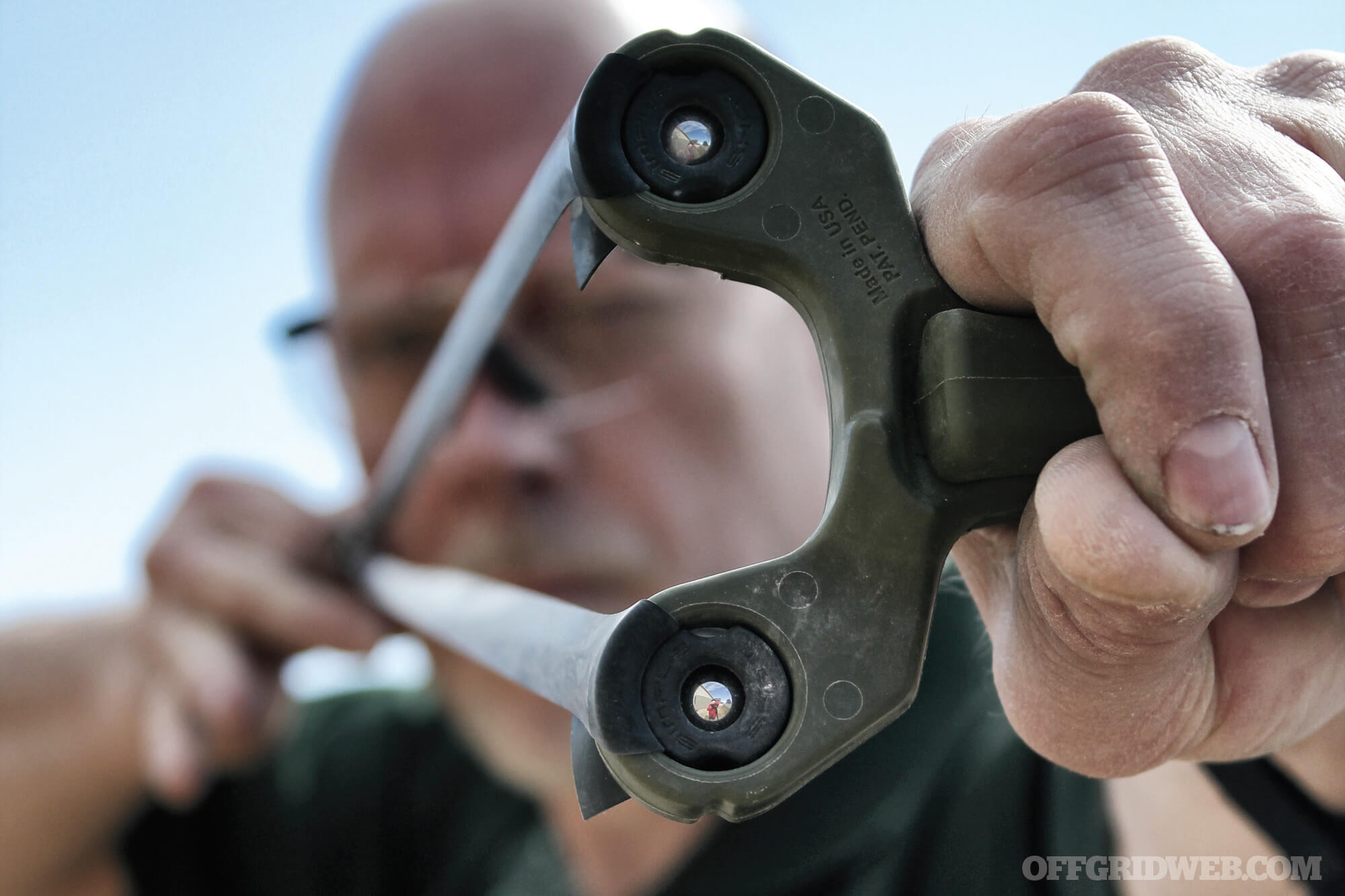
No tool is effective without proper technique. Developing slingshot skills requires dedicated practice:
Grip
A relaxed grip minimizes tension, while firmly wrapping fingers prevents slippage during powerful shots.
Stance
Keep both feet shoulder-width apart, leaning slightly forward for balance. Anchor non-dominant hand on thigh to steady aim.
Drawing
Pull bands straight back until fully drawn, not to either side. Inhale on draw, exhale on release for smooth motion.
Anchoring
Chin or cheekbone contact creates a consistent anchor point crucial for accuracy. Line up eyes, bands and targets.
Releasing
Relax fingers in a fluid motion, not flicking wrist, allowing bands to send projectiles on a straight trajectory.
Follow Through
Keep eyes focused on impact spots through shot. Ensure stable stance during powerful forces to prevent swaying off target.
With regular practice, these fundamentals become second nature. Take time to hone skills through varied target drills before hunting applications. Safety always comes first.
Advanced Techniques
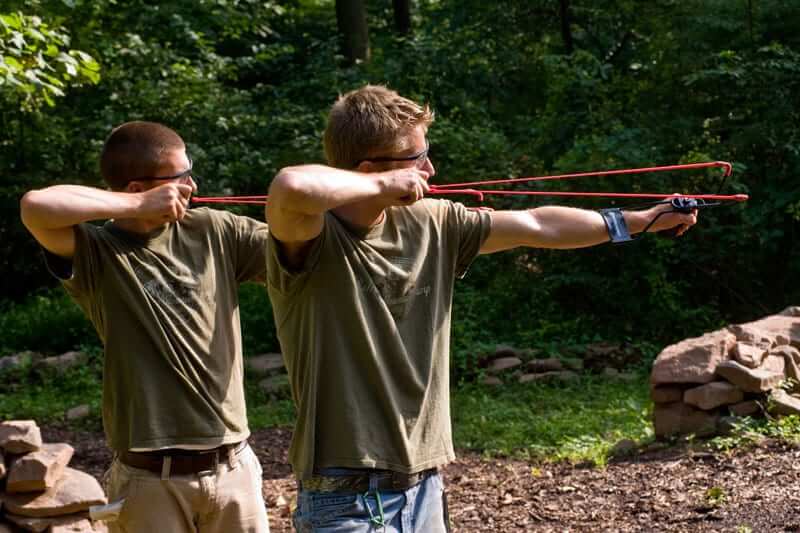
Mastering basic techniques opens doors to more complex methods expanding the tactical slingshot’s capabilities:
Pinch Grip
Gripping ammo between thumb and index finger adds spin for stability. Requires lighter bands and draws weight for control.
Double Draw
Pulling bands twice, anchoring between draws, doubles stored energy for increased velocity. Demands precise form.
Snap Shooting
With snap shooting, the draw is initiated after acquiring the target for incredibly fast target engagement. Experts only – dangerous without extensive practice.
Trick Shots
Constantly challenge yourself with varied targets, elevated shots, moving/bouncing targets and long range attempts to push limits.
Butterfly Grip
Similar to pinch grip but uses middle finger crease for ammo placement. Comfortable for extended sessions.
Mastering advanced slingshot techniques elevates your skills and takes full advantage of the weapon’s potential. Always balance challenge with safety.
Customizing Your Slingshot
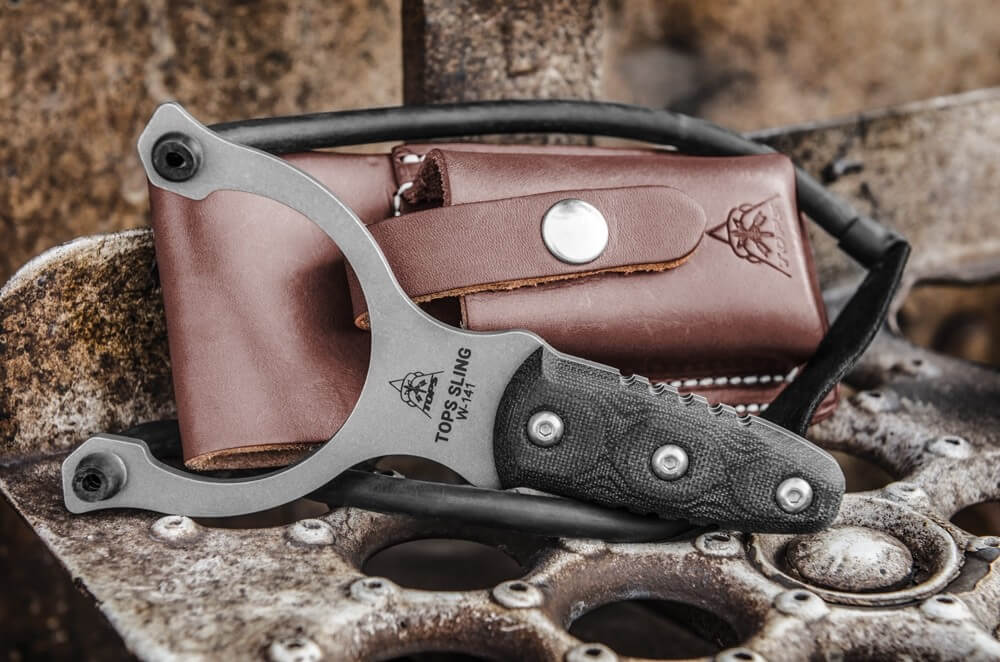
Many top slingshot manufacturers allow for extensive aftermarket customization:
Ammo Pouches
From basic leather to advanced clipped/agitated designs, custom pouches tune velocities for specific needs.
Bands
Wide selection of tapered, looped and tubed bands in latex.
Sights
Ghost-ring, aperture, optical, glow-in-dark – whatever sighting system suits your preferences and conditions.
Grips
Wood, ergonomic polymers, palm-swell designs offer options for all hand sizes. Wrist braces too.
Finishing
Wood slingshots can be stained, shellacked or upgraded with inlays. Metal models accept cerakote coatings.
Additional Accessories
Lanyards, carrying cases, cleaning kits, ammo containers – the list grows alongside your gear.
Personalizing your slingshot boosts enjoyment and optimizes it for your unique needs, strengths and intended uses. Experiment creatively!
Conclusion: A Surprisingly Versatile Tool
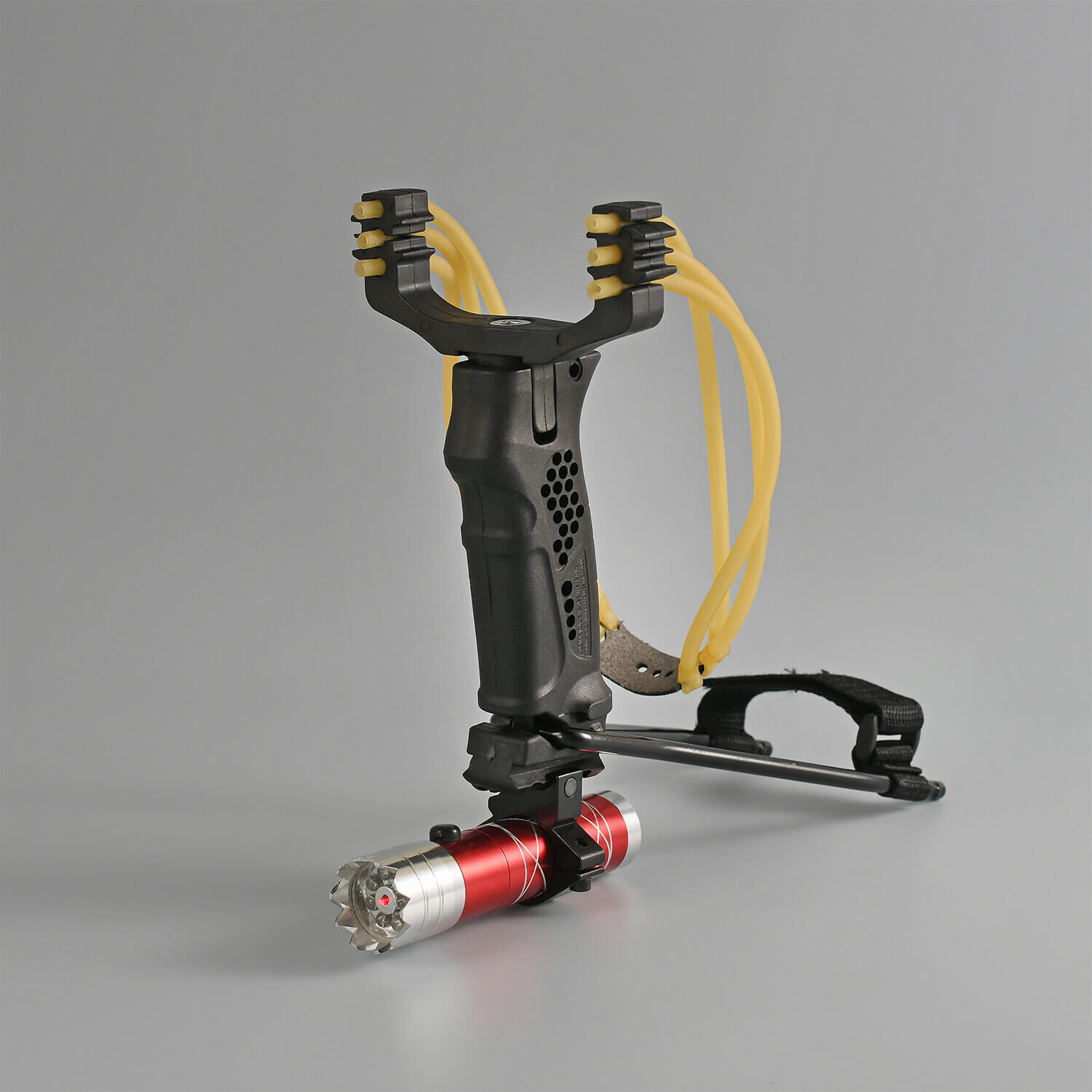
While often dismissed as a childhood toy, the tactical slingshot has evolved into a practical survival tool.
With proper technique and understanding of its advantages, limitations and legalities, it provides several useful applications from small game hunting to fishing, signaling and more.
Today’s premium slingshot models combined with the right ammo and customization take full advantage of this simple weapon’s diverse potentials.
With regular practice, dedicated shooters expand their skills through varied drills and advanced methods.
Always prioritize safety, research your local laws and use discernment in any potentially lethal applications.
However, the slingshot’s history of military and survival usage suggests promise that responsible enthusiasts are only beginning to unlock.
Properly leveraged, it may one day aid those facing unpredictable challenges outdoors.

